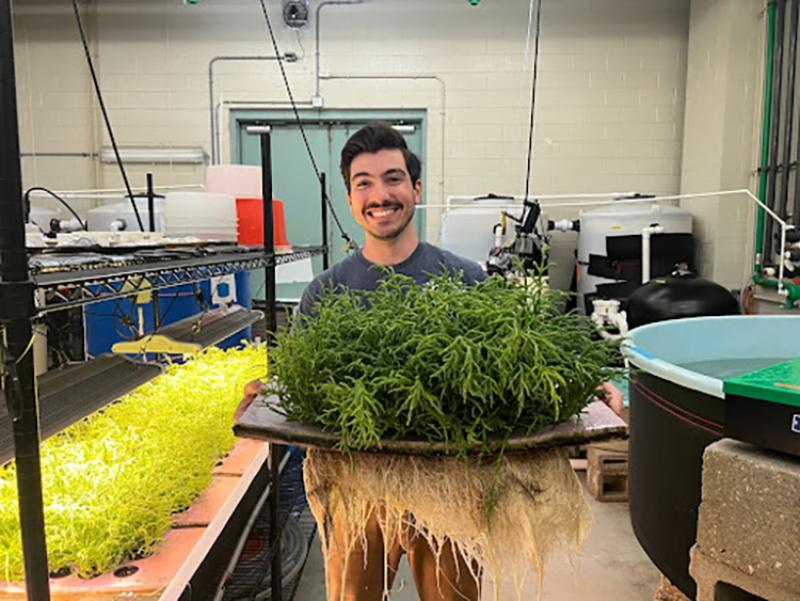ATLANTIC HIGHLANDS, NJ – Mike Acquafredda, a researcher at Howard Laboratory, has successfully tested a sustainable aquaculture system that utilizes waste in a circular economy approach. The integrated multi-trophic aquaculture system he developed has the potential to both manage waste and create additional products.
“This is an environmentally sustainable way to grow fish. In these systems, two or more species from different links of the food chain—scientists call them “trophic levels”—are grown together. Fish waste and uneaten food are used by the other species in the system to produce more products that the farmer can sell,” NOAA Fisheries said.
Acquafredda’s system featured three trophic levels: striped bass, sandworms, and sea beans. The striped bass, a popular food fish, produces waste and uneaten food that are consumed by the sandworms and sea beans, thus recycling waste within the system. Sandworms are valuable both as bait and for feeding farmed fish, while sea beans are an edible sea vegetable with potential as biofuel and animal fodder.
Acquafredda, who holds a Ph.D. in ecology and evolution from Rutgers University, grew up in Monmouth County where the Howard Lab is located.
“I dreamed of one day working at the NOAA lab here,” he shared. His work aligns with that dream as he has contributed to the research needed for a more sustainable aquaculture sector.
The five-month-long experiment showed that striped bass in the multi-trophic system grew at rates comparable to those in conventional systems. This is vital for the financial viability of the method, as the fish represent the most valuable product in the system.
According to Acquafredda, the sandworms were able to recycle 45% of the fish waste and uneaten food. He also harvested more than 54 pounds of sea beans, which also utilize waste in the form of dissolved nutrients. His work shows that with more space, the system could have produced even more sandworms and sea beans, further optimizing waste recycling.
“Integrated multi-trophic aquaculture is feasible and can be environmentally sustainable,” Acquafredda explained. “Whether or not it can be profitable depends on how creative growers can be with developing cost-effective systems.”
